|
Let's say you are out flying your 'Non-FIKI' airplane and your XM weather all of the sudden updates to this...what would you do?
We will see what Karlene Petitt & the guys at Boldmethod would do on Simple Flight Radio - Sunday May 18th, 2014. 8PM CST
83 Comments
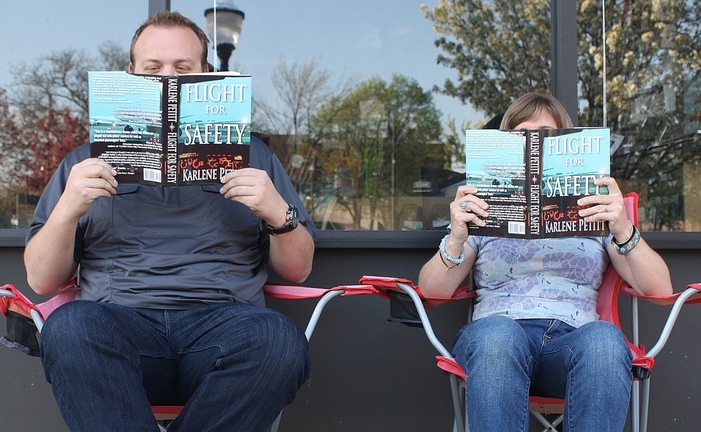 You are going to love it as much as we did.... You are going to love it as much as we did.... International airline pilot, grandmother, best selling author and #avgeek Karlene Petitt is making a special appearance. Get this, she's going to be promoting her new book Flight for Safety at the AVIATION UNIVERSE's AVFEST this weekend May 17th and 18th. Simple Flight Radio will be broadcasting LIVE on location at the Aviation Universe on May 18th. If you're an #avgeek and are in the area, stop by at 6:30pm to say hello to Karlene Petitt and the awesome folks at the Aviation Universe! Karlene will even autography your copy of Flight for Safety for you! 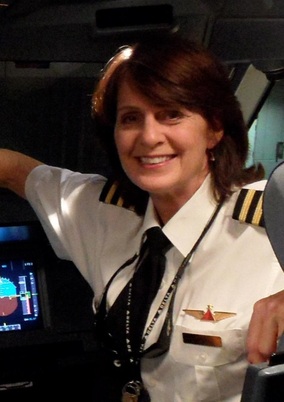 Some of the radio show's favorite moments are when we broadcast live on location! We thought we'd do it again and celebrate the ending of the "ROCK YOUR #AVGEEK WEEKEND" at the Aviation Universe with our radio show guest Karlene Petit. Karlene is flying into town all the way from Seattle, WA to promote her new book and be on Simple Flight Radio! A great way to celebrate will to have pizza, drinks and #avgeeks before the show and then we will go LIVE with Karlene Petit at 8PM CST for a great episode of Simple Flight Radio! Make sure to RSVP so we can get a heads up on how many #avgeeks we need to feed! Aviation Universe - 13 W Main St, Bensenville, IL 60106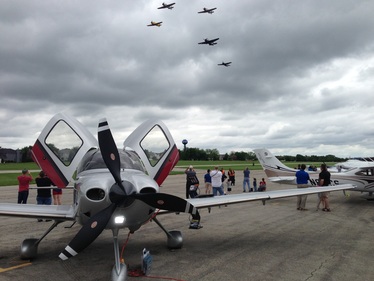 Students: as candidates, we are a nervous lot on the day we take our oral and practical pilot exam. This day, for #avgeeks, is like going before Saint Peter to learn where we will spend eternity. We are not sure if our training efforts were sufficient to pass our rating. But you are not the one that should be nervous. Maybe it should be the other way around. We are waiting all day to hear the ‘pass’ or ‘fail’ answer from our designated pilot examiner. On exam day pilot candidates usually develop a case of anxiety and fear of the DPE (Designated Pilot Examiner) as we seek his almighty approval. That pass/fail response from the examiner is akin to the heaven/hell response from St. Pete. We, as ‘examinees’ fail to look at the other side of the coin. Is the DPE seeking our almighty approval? … Wouldn’t that change your attitude about the checkride? You bet it would. But why should the DPE develop anxiety and fear of the student, or Pilot Candidate? BECAUSE YOU ARE THE CUSTOMER!! Designated Pilot Examiners are hired test proctors. Pilot candidates choose their intended DPE and make the phone calls to schedule an appointment. Candidates are the ones who bring a check or a lot of cash for the examiner. Candidates are the ones who HIRE a designated examiner to administer the applicable pilot’s exam. There should be an element of customer service considered in this transaction, since you are the customer. And if everything goes right, there will be future recommendations - - future business for the DPE. I have heard and experienced many horror stories of examiners inflating their fees and churning and burning out pilot candidates. It’s heart breaking from a CFI’s perspective when you prepare a candidate for a test; you really try to encourage the student to enjoy the experience. You want the student to remember the day they got their new rating for the rest of their life! But I remember one particular case when customer service provided by the examiner was so bad the student later told me (even after he passed the exam) “You’re right, I will remember this day for the rest of my life. It was terrible!” Okay, so that’s not the way we want the day to be remembered. Pilot examining has become a lucrative business for some examiners. I am not saying examiners should not be paid, but it has been my experience that, when it comes to DPEs, you don’t necessarily get what you pay for. Top dollar does not always reflect a great exam. Sometimes, it seems as though the opposite results are obtained. So, how do we fix this? Well for starters, we can be incredibly prepared. There are plenty of examiners who will tell you in advance what their tests are like. The truth of the matter, though, no examiner should have to expose their test to sell you on their examination skills. Everything you’ll be tested on is in the PTS (Practical Test Standards). If you have a good CFI putting every point the PTS requires into context for you, you would not have to worry about a particular examiner’s test method because you’ll be able to pass the test! At the end of the day, you don’t want to be able to pass just one examiners test. You want to know, deep down in the pit of your stomach, that you would pass any examiner’s test. Bring it on! Second, you can interview your examiner. Remember, for your exam you are the paying customer and want to remember the day you passed your exam for the rest of your life! And you want to walk away from that exam knowing you will be proud - - not only of the fine job you did, but also proud of the job the examiner did. So, choose an examiner you think is good at knowing what pilots should and should not do; good with people; and, well-respected in the pilot community. Ask yourself this question when talking with your examiner “Do I want this examiner to be the person who gives me my reason to celebrate?!” Think about it. Passing a checkride is a special moment you want it to be a happy moment. You might even ask the examiner how he or she will help enhance your celebration and special day. This is a tricky question to answer, make sure you think about how you want it to go! Don’t just go with the flow, remember you are the customer! As the customer, you want your service provider to know what you expect the experience to include. Don’t expect the DPE to walk away after the exam. A debrief for you AND the instructor is incredibly important. Ask your examiner how they will engage your CFI. Your CFI will be better for his or her next student, and that’s a good thing! Because flight training can always be better, more efficient, and higher quality. The precious moments right after the pilot exam is where maximum learning can happen for both the new pilot and their CFI. Remember how you hired an expert to get his or her opinion about how well you know the FAA regulations, flight operations, and how to handle your airplane? This debrief after the exam is when you get all those answers, and more. During the exam, DPE’s cannot volunteer information to help a candidate through the test. The FAA is very strict in assuring the DPE is not acting as a flight instructor, and is truly testing what the candidate already knows. But the debrief after the exam is exactly the time when the examiner can interject the opinion and offer advice. Often, the information you will hear in the debrief will involve critical comments about where you could have done better in the exam and what the examiner really hoped to see. Those comments are not meant to be hurtful. If you really listen to the debrief, you can learn a lot. Who doesn’t like learning? Think about how your checkride dynamic would change when you engage your training experience and your examiner with these simple little shifts in mentality. Days before the checkride, when you call your selected DPE to ask about scheduling the exam, you will set a first impression about you for your examiner. Now think about it. How awesome would it be if, instead of you trying to impress your DPE, your DPE was trying to impress you!? Comment below about your favorite examiner stories! If you have an examiner horror-story we want to hear that too! 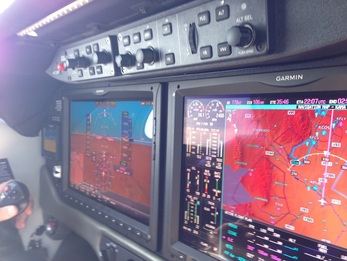 It seems that over the last several years we have seen a lot of discussion about the decreasing number of pilots flying in the U.S. I am sure if you spend any time at your local FBO you have noticed this too. So what’s the big deal? Why are people not flocking to flight schools for lessons? What has happened to that desire to fly like the birds? Well, it depends on who you ask -- and be ready for a good story. The answer to the question usually touches on the economy, fuel prices, flight schools, and flight instructors. For the sake of this writing let us focus on flight schools and instructors. Now, we at Simple Flightcertainly believe that there are a lot successful flight schools and passionate flight instructors out there doing a fantastic job. A lot, yes; but not all flight schools are successful and not all flight instructors are doing a fantastic job. How, then, does every flight school and CFI, nationwide,crack-in to this secret code of success. I am not sure it is even a secret. It seems like this day and age anyone who is not at the top of the game wants to believe the problem is caused by something beyond their control. It’s always someone else’s fault. What if, instead of blaming someone else, we all stepped back, took in a broader view, and tried to refocus on what is important and the tasks we can complete to reach not only our goals, but our customers goals? With student retention rate at an all-time low, our main focus should be the customer and providing them with the best value possible. I strongly feel that most of these issues are derived from within the source (flight school or instructor) itself and with a little guidance a complete shift of mentality could change flight training. If you see these issues in our industry as I do, you know the time to make a change is now!! I am sure everyone has heard of the KISS or keep it simple silly (we will use silly instead of stupid) theory. Let's apply that idea within the flight training industry. Here is a list is to suggest how flight schools and CFIs (myself included) can refocus what we are doing. Basically, I’ve tried to use the basics of Business 101 to focus on retaining the customer and keeping him/her motivated to enthusiastically believe there is value to the service we are providing. If you want to build pilots, here we go! CFI - Find the passion to help your students achieve their license in 40 hours not 80. Develop a syllabus personally for each student. It pays to keep them happy and flying or they may go buy that boat instead. What did that Fundamentals of Instructing book say? Oh, yes adjust to your students! FBO/Flight School Owner/Management - Be a level 5 leader, plan for the future, and find the right people to put on the bus. If your employees see your passion and involvement in the program less motivation and management is needed for morale. CFI - Learn to enjoy where you are right now and your clients will too! Yes we are all building time to move up the ladder, but don’t give that impression. FBO/Flight School Owner/Management- First impressions are important! The dog pee stain on the carpet in the lobby, or the interior of your Cessna 152 falling apart because no one has the initiative to take action is not very inviting to new clients walking through your door (yes we have seen it). CFI - Remember you also wear a sales hat. Help keep your work area (airplane & office) very inviting to customers. Hey, you never know the boss may notice too! FBO/Flight School/Management - Facebook, Twitter, Instagram, or at least a well thought out website with contact information can help prospective customers find you. Social Media has proven to be a huge marketing tool. Simple changes of business strategy and finding the passion to help others is really the key to a successful operation. Now I agree there will always be outside forces that affect the business weather, maintenance, fuel costs to name a few. Work those hiccups into the business model. Simulator or ground instruction on weather days is one example. Think outside of the box and bring in fresh ideas from everyone that is associated within the organization. As you can see the list above which is fairly basic could go on and on. Maybe we need a gigantic suggestion box that we all could drop a note in to. Would anyone read them? What would yours say? Travis Ammon Twitter: @tbammon Hey #Avgeeks, Al here!
There is so much grey area in the most recent Flight Training Blog post from Boldmethod. Its enough to drive you crazy! Lets take a look at the scenario again: You're a private pilot and you own an airplane. Your boss offers to pay for your fuel and tie-down on a business trip. Can you take the money? Check out the full scenario and tell us what you think. (Tune into our LIVE discussion on SimpleFlight.net radio - Sunday, March 2nd at 8pm CST) Aircraft:Cirrus SR-22 Scenario:You work as a salesman for an aviation parts company in Wichita, KS, and there's an upcoming sales conference that you need to attend in Dallas, TX. Another salesman for the company has a product demo at the same time in Oklahoma City, OK. Your boss offers to cover your fuel and tie-down fees if you fly your SR-22 to the conference. He also asks you to bring the other salesman to their product demo in Oklahoma City, drop them off, and pick them up when you are done with the conference. What do you think? Can your boss pay you to cover the fuel and tie-down? Do you know where to look to find the answer? Finding the answer to this is a great exercise in learning where to look in the FAR’s. We commonly hear of part 91, part 61, part 135 and the list goes on (Parts 1-1399 to be exact!). Most general aviation flying happens under Parts 61 and Part 91 so its easy to quickly identify that the answer lies in one of these parts. Here is a simple tool (which is a series of three questions) on how to figure where to look into the regulations. This tool is designed to allow you to step back from the issue and look at the core of what you are really asking yourself. Your answer to the question will be the trigger to direct you to the appropriate part. So, check out this tool to help you work through the problem. “Is this question asking something about me being pilot in command on this flight?”
Let’s apply this to the original question again. Remember we want to step back and ask ourselves what is the question really asking? That’s when we apply the tool. Let’s try it. “Can your boss pay you to cover the fuel and tie-down?” If we stand back from the question and try to figure out what its really asking we can figure out where to look. Once we apply the real question to the tool on where to look in the FAR's we are set off in a good direction on finding the real advice. The real question is asking if the pilot in command can be paid back for the fuel and other operating expenses based on having a private pilot certificate? “Is this question asking something about me being pilot in command on this flight?”
Does this help you get a little bit closer to the answer? Make sure to tune in at 8PM CST on Simple Flight Radio for a LIVE discussion about this with Aleks and Colin from Boldmethod. Also make sure to cast your official vote here on whether you can be reimbursed or not.  One of the most awesome compliments on the aviation twitter scene is being called an #avgeek. There is something fun about it. A lot of us self proclaim that we are #avgeeks. That is awesome, but its even cooler to be called an #avgeek by somebody else. The term #avgeek seems to come from the old a/v geeks that you'd run into in high school. The audio and visual geeks. Its amazing how Twitter can redefine a word though. If #avgeek were defined in the dictionary, it would probably read something like this.... #AvGeek [Slang] NOUN 1.an aviation enthusiast (a term of pride as self-reference, but often useddisparagingly by others). 2.a person who has excessive enthusiasm for and some expertise about aviation: airplanes, general aviation, commercial aviation. 3.a peculiar or otherwise lovable person, especially one who is perceived to be loving of aviation. 4.a hashtag on a tweet with an aviation reference or aviation image with our without filtering. Being an #Avgeek is probably one of the best things that has happened to me. Its who I am. Its all I think about. Its who I aspire to be! I am proud to be an #Avgeek! How would you define #Avgeek? 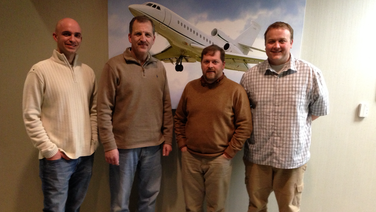 Ground Effect Advisors, Louis Bowers, Marc Epner, Todd McClamroch, Al Waterloo Have you ever applied for a scholarship? What was it like? Did you win? I am going to go out on a limb that the scholarship that you applied for was set up to affect just an individual. There is absolutely nothing wrong with that. But why doesn't the scholarship affect more than one person? I think of the "classic" aviation scholarship as one person receiving a chunk of money to "advance" their pilot skills. Don't get me wrong, I would have loved one of those scholarships! Given the current state of aviation, I think we can make the “aviation scholarship” better! Better meaning that it will affect a large population of pilots its effect will be felt long after the scholarship program has ended. The team from Ground Effect Advisors is tackling exactly that. They have put out a new Aviation Scholarship that addresses a community, not just an individual. The Ground Effect Advisors are really excited about this. The cool thing about this aviation scholarship is that it does address the issues of today’s broad pilot community and it creates a living organization that will provide benefits long after the term of the scholarship. Okay, so what is this aviation scholarship? The Ground Effect Advisors team is offering a scholarship to start a flying club! Through their own efforts and the participation of sponsors who share their vision, they are providing the tools, money, and expertise to launch a flying club at an airport. The idea behind this scholarship is that it will build a pilot community. This community will breed an aviation environment that will attract members to the club, business to the airport, and grow the pilot community! I know it sounds like I’m really pounding this idea about community and lasting effect. That’s the point here. Like I said, Ground Effect Advisors are not the only people excited about this. There are some outstanding partners who are donating to this scholarship as well! Cirrus Aircraft and Sporty's Pilot Shop have donated aircraft appearance kits so that clubs can take a pride of ownership of their airplanes and schedule social events around plane washes. David Clark has donated two pilot headsets for the club to promote bringing friends along while flying! Heading 370 has donated some clothing gear for the club so other pilots recognize who they are. The AOPA is donating $1,000.00 to help provide a financial boost to the club! Pilot Edge has donated a free time limited subscription to their Air Traffic Control services on Flight Simulator and X-Plane. LiveATC.net is donating a scanner to put at the airport so that the whole world can hear the flying activity that the club does. ScheduleMaster is donating a 6 month subscription for online scheduling. Signature Flight Support is donating 50 gallons of AvGas for the flying club to be used at any Signature Flight Support location! You can see that, nationwide, the entire aviation community is getting geared up around this and people are really excited! Make sure you apply because in order to win this scholarship your group needs to provide some basic information on the application form at www.startaflyingclub.com and submit it. Check out www.StartAFlyingClub.com for more info!  WAKE UP CALL It was 5 am and I couldn’t believe it. The welcoming agent at Flight Safety was smiling and really happy to see me and my co-worker. What an impressive start, and the agent’s smile would carry through my remaining stay at Flight Safety. But, let’s be honest, nothing at 5 am is really easy when you know you are going to be run through the ringer in the King Air simulator. My job as a corporate pilot requires that I complete annual training to maintain my skills in the plane I fly, a Beach King Air 200. So here I was at Wichita Kansas, home to King Air Flight Safety for a week of learning and renewal. During my time there I learned a lot about the King Air that I never knew before; things I never really thought about before. It wasn’t all just about improving safety. It wasn’t airframe limitations, operating specs, or even emergency memory lists ... anyone can teach that if they have Power Point. What I learned at Flight Safety nobody has EVER been able to teach me before - - how to make urgent critical flight decisions in the King Air. These decisions aren’t to be taken lightly. Pilots need to be proficient in making them. They need to think about them. They need to study them. “Why?” you might ask. Isn’t it a given that the pilot will always try and protect themselves, passengers and airplane in all situations? Well, let’s agree that these decisions are a matter of life or the alternative. And Flight Safety training makes you practice making these absolutely critical decisions, which pays dividends on your understanding of the King Air. How did it pay dividends? Well it made me understand what the awesome capability of the King Air really is. If you get stuck between a rock and a hard place, there really is no other airplane I’d want on my side helping me. Imagine if you were taking off in a fully loaded King Air 200 out of a 3,000 ft. runway. It’s hot, and humid. As you were on the take-off roll, you lost an engine at VMC - 86kts. Rotation and V1 speed was 95kts. What would you do? Actually, let me ask you this, would you rather be in a King Air or its counterpart, the Mitsubishi MU-2. The answer to ‘what would you do?’ is a really hard answer. There isn’t a right or a wrong answer, but it pays dividends if you know what your airplane will do for you. Flight Safety understands the responsibility a King Air pilot has. You’ll have a hard time finding more King Air knowledge under one roof. Given an emergency situation in the simulator, I got the chance to make a decision and respond. I got to see the result of my actions while in the safety of an air-conditioned facility safely anchored on the ground. Then I could benefit from advice my trainer gave me and try it all again to see if I could get a better result. Not only was I gaining new knowledge about a plane I flew on a regular basis, I was immersed in the experiences that are found only at certain moments … when you least expect (or, want) them. As a pilot, I see that knowledge base and experience as low hanging fruit for the picking! To help identify the fruit your diet needs, the trainers at Flight Safety want you to ask questions. They build your learning experience around your skill level and the daily challenges you face. I can guarantee that if you take this training you’ll be handsomely rewarded with a relationship that you have never had before with your King Air. So, you don’t fly a King Air? My apology. But, I’m willing to bet that there is a Flight Safety program for your bird, too. This training is worth getting up at 5 am.  Meredith and her Dad at the University of Illinois! My father earned his pilot’s license right after graduating from college. He flew for a couple of years, even with my mom, but once my sisters and I were in the picture, his flying time gradually decreased. However, now that my sisters and I are all grown up and most of our college expenses and two weddings are behind him, he decided to start flying again. He was recertified last year and joined a great group of people at the Leading Edge Flying Club at Chicago Executive Airport (but my dad says he will always call it Palwaukee). Through the club he has made a number of friends—friends who often are willing to fly with him whenever possible. I have been lucky enough to fly with my dad several times, and have really come to enjoy it. Whether it’s a trip to visit the University of Iowa, have lunch with a family friend in Madison or just flying to Janesville to have my favorite biscuits and gravy, I really enjoy that time together in the air. Now that I am a student at the University of Illinois in Champaign, my dad has flown down a few times for football games and to visit. Most recently he offered to pick up my roommate and me in one of the club planes at the start of winter break. I knew that we wouldn’t all fit in the Archer that he normally flies, so it was pretty cool when he showed up in a Piper Dakota with another club member and flight instructor, Al Waterloo. It turns out that my dad is trying to get checked out in the Dakota and so he asked Al if they could use the flight to Champaign as a check-ride. Since Al loves to fly whenever he can and he graduated from the University of Illinois, which is also where he earned his pilot’s license, he was pretty excited to make the flight. Although I wasn’t sure if the plane would hold all of our stuff, it swallowed up everything and all of us just like a scheduled airliner (OK- a very small airliner). As soon as we took off from Champaign we were in the clouds so I got to see my dad get his first experience with flying in IMC. About halfway home my dad and Al figured out that we could get on top of the clouds so we climbed up and broke through into a beautiful sunny day! Flying on top of the clouds was an amazing experience and getting to share that with my roommate while my dad was flying was something I will never forget. I look forward to our trip back down to Champaign and many more trips in the future! Watch our flight home here! : Champaign to Chicago! P.S. We were not able to fly back down to Champaign yesterday (1/13/13) because of icing conditions in the clouds. I guess not even the Dakota and Mr. Waterloo are enough if Mother Nature isn’t cooperating. |
Authors:
|

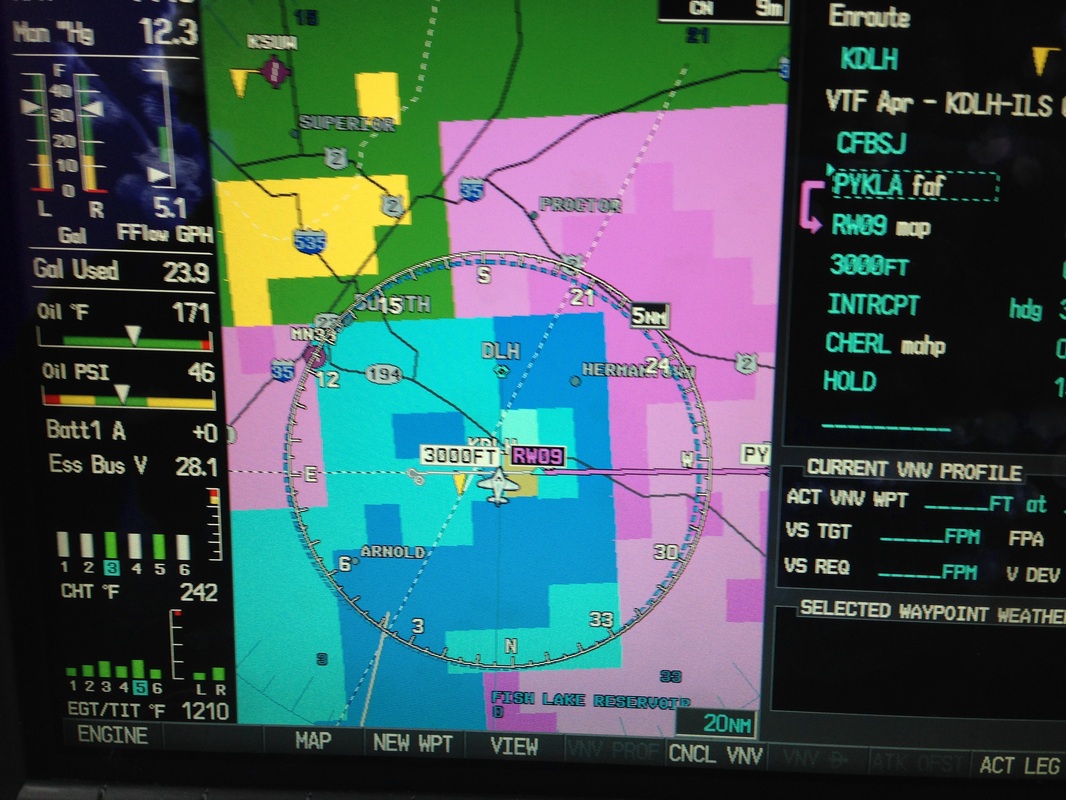
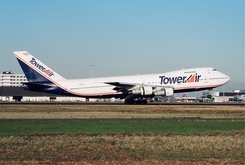
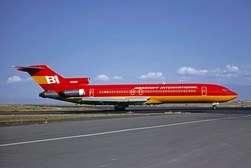
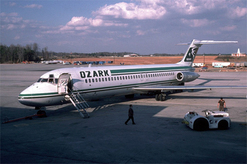
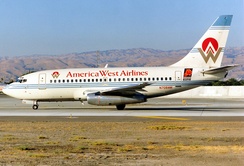
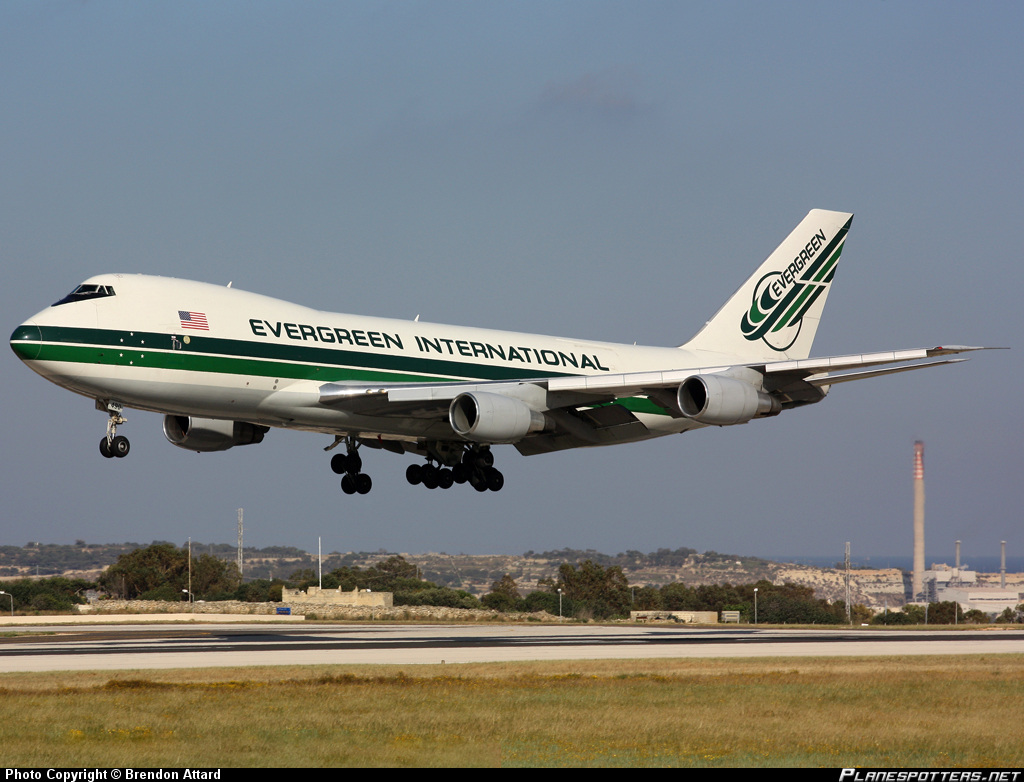
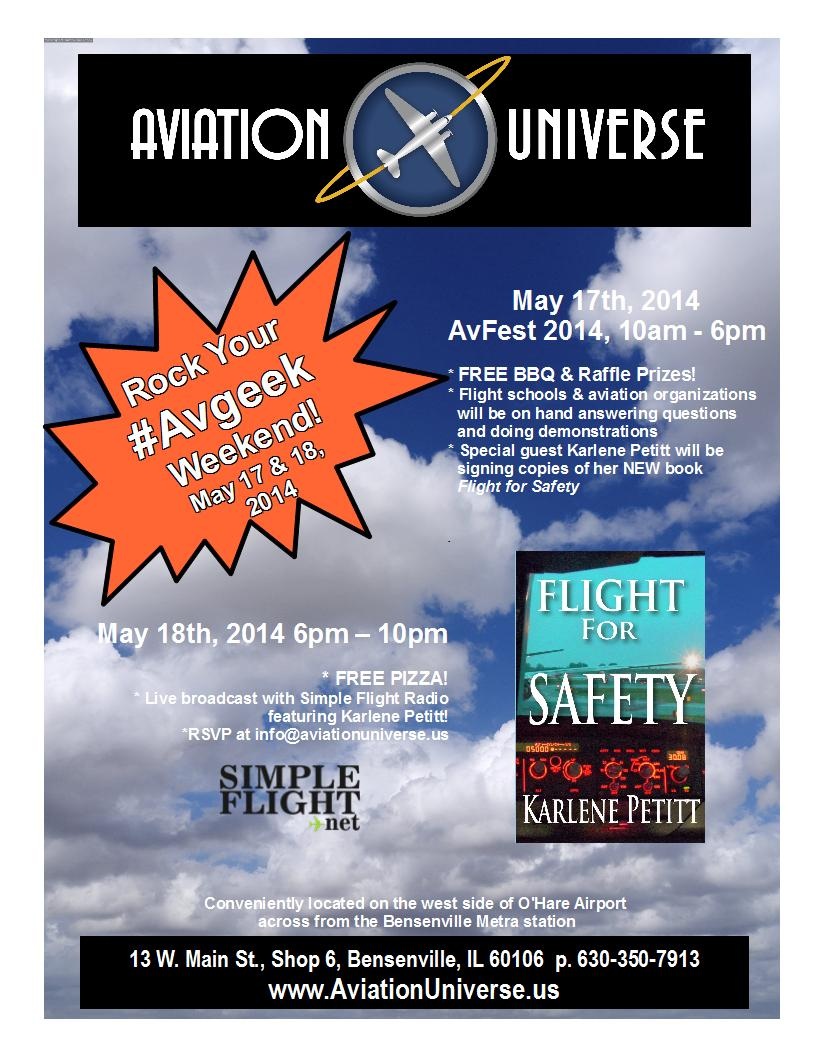

 RSS Feed
RSS Feed